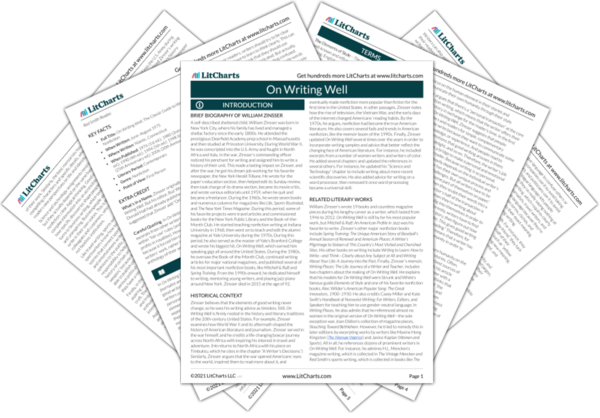Quest and intention give a piece of writing unity by defining its narrative arc. Therefore, Zinsser suggests that writers should define their quests and intentions when they plan their work, just like they should define their tone, pronouns, and tense. Zinsser also reminds his readers that writing itself is a valuable tool. It’s a tool for writers’ self-discovery and reflection, and it's a tool for them to uplift or shoot down certain ideas for the public. Zinsser’s implication is clear: writing has real power to change the world for better or worse, and writers should be careful to use that power to good.


